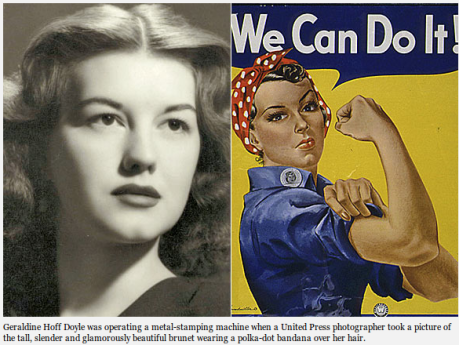 “The President’s done something I find hard to understand. Ever since FDR, we’ve had capacity to be engaged in two conflicts at once. He’s saying, ‘No, we’re going to cut that back to one conflict.'” Mitt Romney, Sept. 13th, 2012.
“The President’s done something I find hard to understand. Ever since FDR, we’ve had capacity to be engaged in two conflicts at once. He’s saying, ‘No, we’re going to cut that back to one conflict.'” Mitt Romney, Sept. 13th, 2012.
Oh, no, he didn’t. Yes, he did. One of the myths that Republicans and conservatives alike tend to promote is that war is good for the economy. Using the example of the economic boom in WWII after the Great Depression, they point out that it makes good economic sense for America to be involved in at least one conflict.
Economist Mike Moffatt disagrees, using The Broken Window Fallacy from a little book by Henry Hazlitt called “Economics in One Lesson”, a book that Moffatt recommends to everyone. “In it, Hazlitt gives the example of a vandal throwing a brick through a shopkeeper’s window. The shopkeeper will have to purchase a new window from a glass shop for a sum of money, say $250. A crowd of people who see the broken window decide that the broken window may have positive benefits:
- After all, if windows were never broken, what would happen to the glass business? Then, of course, the thing is endless. The glazier will have $250 more to spend with other merchants, and these in turn will have $250 to spend with still other merchants, and so ad infinitum. The smashed window will go on providing money and employment in ever-widening circles. The logical conclusion from all this would be … that the little hoodlum who threw the brick, far from being a public menace, was a public benefactor. (p. 23 -….p. 24 – Hazlitt) The Broken Window Fallacy is enduring because of the difficulty of seeing what the shopkeeper would have done. We can see the gain that goes to the glass shop. We can see the new pane of glass in the front of the store. However, we cannot see what the shopkeeper would have done with the money if he had been allowed to keep it, precisely because he wasn’t allowed to keep it. We cannot see the set of golf clubs not purchased or the new suit foregone. Since the winners are easily identifiable and the losers not, it’s easy to conclude that there are only winners and the economy as a whole is better off.”
There is another, hidden reason that the economy did so well during that period of time. Women. Specifically, women entering the workforce, in record numbers, simply because practically every single male who was of age and able was overseas fighting the Germans and the Japanese. Mary Anderson, director of the Women’s Bureau, U.S. Department of Labor, reported in January 1942 that about 2,800,000 women “are now engaged in war work, and that their numbers are expected to double by the end of this year.”[ Some started out in manual labor, and indeed never did rise. However, the workforce saw women rise to executive positions in record numbers. There were more women in power during that time of history than in any other. As Glenn Martin, a co-founder of Martin Marietta, told a reporter: “we have women helping design our planes in the Engineering Departments, building them on the production line, [and] operating almost every conceivable type of machinery, from rivet guns to giant stamp presses”.[39]
The economy did so well because women were in charge of mostly everything. This is the dirty little secret that the business sector, still a mostly male dominated field, doesn’t want to get out. Not only are women totally capable of running businesses and, indeed the country, we do it better. End of story. No, Mr. Romney, war is not and has never been good for the country. However, women in power, has never been bad for any country or business.
